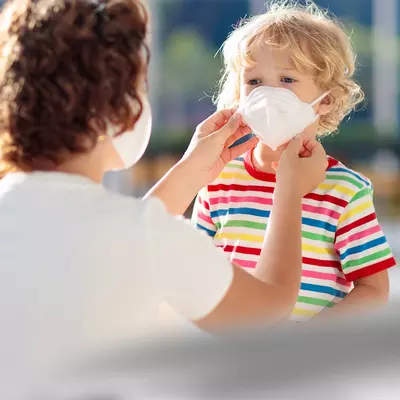- AdventHealth

As politicians, public health experts and the media discuss the next phase of managing coronavirus, you may have heard the term “herd immunity.”
Can we expect herd immunity to play a role in the future of COVID-19? Here’s what we understand right now.
Herd Immunity Can Slow — or Even Halt — a Disease
Immunity occurs when a person’s body has produced antibodies against a disease, protecting them from developing it, according to The Centers for Disease Control and Prevention (CDC). This can occur after a person has recovered from a disease or received a vaccine for it.
When enough people in a given population have immunity, more than just those people are protected. This is what’s known as herd immunity, also called community immunity.
If most people can’t get sick from a given germ, it’s not as easy for the germ to pass from person to person. Even people who aren’t immune to a disease — because they haven’t been vaccinated or had exposure to it — are therefore less likely to catch it.
Herd immunity can protect the vulnerable people in a population who may not be able to get vaccinated or might be at high risk for complications. This usually includes older adults, newborns and those with underlying health conditions. Herd immunity also reduces the risk for new outbreaks because the harmful infection may be stopped before it can spread widely.
The Power of the Herd
Herd immunity has dramatically reduced the risk for many diseases in the United States and worldwide — and has nearly wiped out some altogether. For example:
-
Now that many children have received pneumococcal vaccines, fewer older adults have been hospitalized for pneumococcal infections, which can strike the ears, lungs, brain and blood, the U.S. Department of Health and Human Services notes.
-
Smallpox has been wiped out altogether, thanks to widespread vaccination and community immunity. Now children don’t even have to get shots for it anymore, the CDC explains.
-
When about 95% of a population is vaccinated against measles, most people are protected, according to the World Health Organization (WHO).
When Herd Immunity Doesn’t Apply
Though herd immunity can be powerful, it doesn’t work against every infectious disease. Often, this has to do with the way a specific vaccine works or how an individual microbe spreads.
For instance, herd immunity can’t protect vulnerable people from pertussis (also known as whooping cough), the CDC explains. That’s because the condition spreads so easily, the protection a vaccine offers decreases over time, and the bacteria that causes it can be spread even if you have been vaccinated and don’t get sick yourself.
Herd immunity is also ineffective against meningococcal disease and tetanus. This doesn’t mean getting shots against these diseases isn’t important. In fact, it means vaccines are the best way to protect yourself and your family.
Also, even if a disease has largely been eradicated from one country or continent, people there should still get vaccinated. Travelers can come from places where the disease still exists and bring it to the area. For all these reasons, it’s important to work with your physician to keep your and your family’s vaccinations up to date.
Herd Immunity for COVID-19
The big question, of course, is whether herd or community immunity will apply to COVID-19. Right now, experts at the WHO and CDC are still working to understand exactly how immunity from the disease occurs.
People who have recovered from other diseases also caused by coronaviruses — for instance, Middle Eastern Respiratory Syndrome (MERS) — weren’t likely to be re-infected with the same virus soon afterward, the CDC notes. However, it isn’t yet clear whether the same will be true for COVID-19.
Two kinds of tests are available for COVID-19: viral tests and antibody tests. A viral test tells you if you have a current infection. An antibody test tells you if you had a previous infection. Right now, supplies of antibody tests are increasing, but it may still be difficult to find a place to get tested.
The science of antibodies for immunity is unclear when it comes to COVID-19. And experts don’t yet know how long any protection antibodies offer might last.
The Bottom Line for Protection
Without these answers — and without a vaccine — experts don’t yet have the information and tools they need to know how herd immunity might work for COVID-19.
Some experts believe it may take 12 to 18 months before a vaccine is available. However, many scientists are working hard on the issue, and officials such as those at the National Institutes of Health have taken steps to make the process move as quickly as possible.
If a safe vaccine can be developed, many people — including children — will likely need to receive it to achieve herd immunity, the WHO notes. Other strategies might be needed at the same time to achieve group protection, if it’s possible.
In the meantime, there’s a lot you can do to protect yourself and your family. Follow guidelines from your local officials about social distancing and wearing cloth face coverings. Washing your hands frequently and staying home when you’re sick can help prevent many infectious diseases from spreading.
We’re With You Every Step of the Way
AdventHealth is committed to providing the latest information to keep you and your family healthy. To learn more about the proactive measures we’re using to keep you safe, visit AdventHealth.com.



